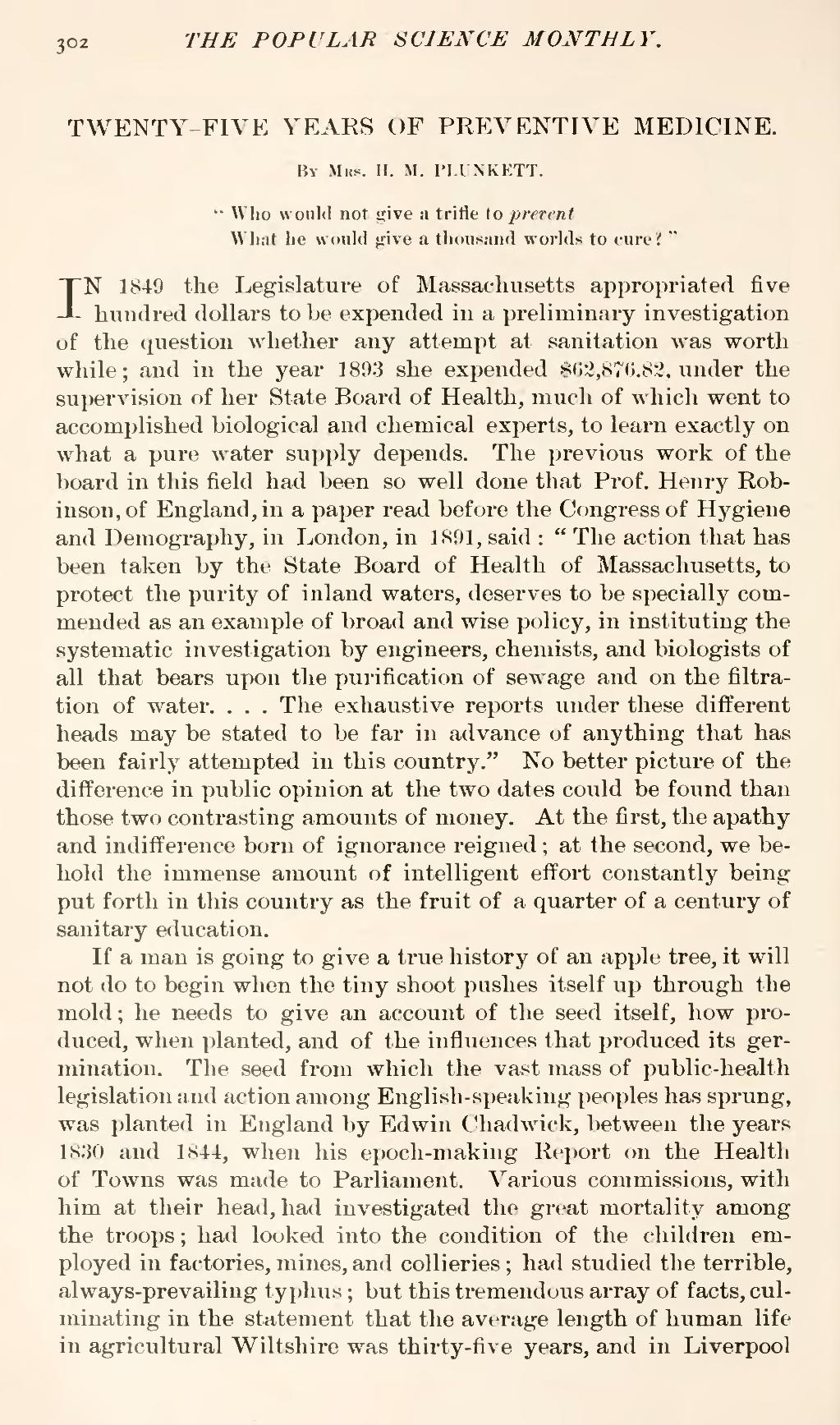| TWENTY-FIVE YEARS OF PREVENTIVE MEDICINE. |
By Mrs. H. M. PLUNKETT.
"Who would not give a trifle to prevent
What he would give a thousand worlds to cure?"
IN 1849 the Legislature of Massachusetts appropriated five hundred dollars to be expended in a preliminary investigation of the question whether any attempt at sanitation was worth while; and in the year 1893 she expended $62,876.82, under the supervision of her State Board of Health, much of which went to accomplished biological and chemical experts, to learn exactly on what a pure water supply depends. The previous work of the board in this field had been so well done that Prof. Henry Robinson, of England, in a paper read before the Congress of Hygiene and Demography, in London, in 1891, said: "The action that has been taken by the State Board of Health of Massachusetts, to protect the purity of inland waters, deserves to be specially commended as an example of broad and wise policy, in instituting the systematic investigation by engineers, chemists, and biologists of all that bears upon the purification of sewage and on the filtration of water.… The exhaustive reports under these different heads may be stated to be far in advance of anything that has been fairly attempted in this country." No better picture of the difference in public opinion at the two dates could be found than those two contrasting amounts of money. At the first, the apathy and indifference born of ignorance reigned; at the second, we behold the immense amount of intelligent effort constantly being put forth in this country as the fruit of a quarter of a century of sanitary education.
If a man is going to give a true history of an apple tree, it will not do to begin when the tiny shoot pushes itself up through the mold; he needs to give an account of the seed itself, how produced, when planted, and of the influences that produced its germination. The seed from which the vast mass of public-health legislation and action among English-speaking peoples has sprung, was planted in England by Edwin Chadwick, between the years 1830 and 1844, when his epoch-making Report on the Health of Towns was made to Parliament. Various commissions, with him at their head, had investigated the great mortality among the troops; had looked into the condition of the children employed in factories, mines, and collieries; had studied the terrible, always-prevailing typhus; but this tremendous array of facts, culminating in the statement that the average length of human life in agricultural Wiltshire was thirty-five years, and in Liverpool
